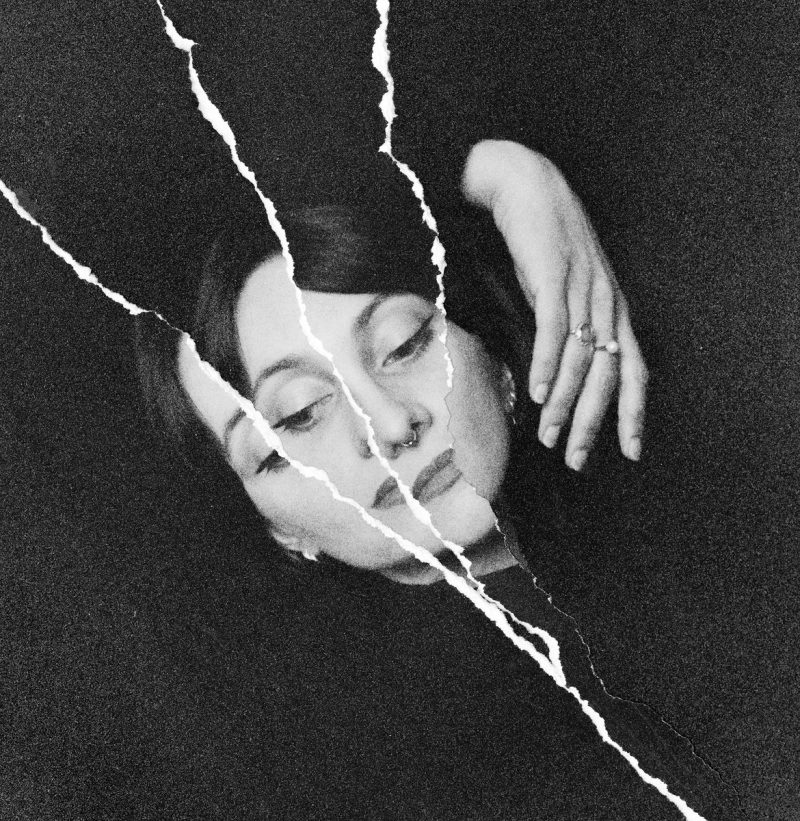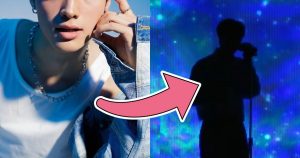Le vague à l’âme, je le creuse à la pelle.
C’est dans les souterrains que je remue le ciel
The etymology of the word ‘clivota’ is shrouded in mystery, hovering somewhere in the geographical and cultural limbo between Slovakia and Romania – possibly lurking in the eerie mist of a Dario Argento landscape. ‘Clivota’ echoes the Baudelairian concept of ‘spleen,’ yet it carries a more nonchalant air. A quaint translation renders it as “she blinked,” a phrase that seems to encapsulate an embrace of existential ennui, tinged with a certain indolent grace.
Lila Ehjä embraces the concept with her stunning new gothic-laden darkwave album Clivota, addressing the questions, nuance and experience of mundane existence through poetic writing.
“Writing songs is my way to transform the trivial banality of everyday life and observe it through the swirls of my brain,” she says.
The album commences with Intro Vague, setting the tone and establishing the thematic essence of the entire work. The lyrics, ‘Le vague à l’âme, je le creuse à la pelle. C’est dans les souterrains que je remue le ciel’, translate to ‘the soul is lost, I dig it with a shovel. It is in the underground that I move the sky’. This translation, while somewhat rough in English, poetically conveys a deep introspection and a transformative journey from the depths of the soul to the vastness of the sky.
The Book is a cover of Nitzer Ebb, from their first demo tape in 1983. “I love this band and EBM in general, and this track in particular because I was listening to it a lot at that time, I just love it,” Ehjä gushes. “And I really like the demos of 80’s groups, they exude the charm of a group which created something new, because that was the case at the time.”
For Ehjä, Clivota encompasses a ‘feeling of evanescent sadness – though not necessarily unpleasant. It is a kind of gentle melancholy, of reverie too, it is like another world which we access by entering into ourselves.” Following the opening track, the album transitions into the more tumultuous Ghost Love. It surges forward with a New Wave beat, reminiscent of the Go-Gos, but with a darker, minor chord twist, evoking the aura of a haunted house. Ehjä’s vocals then enter the scene, ethereal yet assertive, imbued with a spectral, haunting quality that perfectly complements the song’s eerie dynamism.
Rust stands as a dark anthem to misanthropy, offering a vivid journey through a shadowy, liminal space. It’s in this in-between world that the song weaves its narrative, a stark and tangible exploration of disillusionment. Amidst the gloom, however, emerges a powerful beacon of light, creating a striking contrast that illuminates the depths of its introspection. Trigger moves into a slower pace, with ringing echoes and groaning basslines reminiscent of Pornography-era Cure, her voice wavering between heaven and hell. Worship hops back into frenetic EBM territory, its cacophony furiously churning through a melange of emotion.
Noyades is a haunting ode to Ophelia, the emblematic figure caught in a perpetual state of suspension between two realms of existence. The song captures the essence of her tragedy, reflecting the limbo she occupies—hovering between life and death, reality and myth. It’s a poignant portrayal of her ethereal presence, suspended in an eternal, melancholic dance with the waters. Oudrone, Ehjä quips, is the result of two hours of a free synth and Moog practice with artist and friend Luz Leon Noire.
Listen to the album below:
Clivota is out now via CROUX Records on CD and LP, distributed by MODULOR.
Lila Ehjä’s release party will take place on Feb. 9, 2024, at Mecanique Ondulatoire (Paris), with a show in collaboration with the performer Urferaqua.
Follow Lila Ehjä:
Facebook
Instagram
YouTube
Spotify
The post Explore the Icy Soundscapes of French Darkwave Artist Lila Ehjä in Her Latest Album “Clivota” appeared first on Post-Punk.com.



